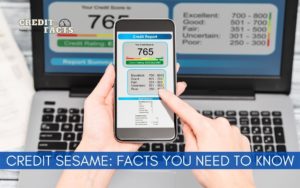If you’re keen on monitoring your credit score without spending a dime, Discover’s Credit Scorecard is a great option. As someone who’s been using this service for a while now, I can confidently say that it offers valuable insights into your credit health.
In this blog post, we’ll explore how anyone can sign up for Discover’s Credit Scorecard for free, even without being a cardholder.
I’ll guide you through the process step-by-step, and provide practical tips and advice that will help you make the most of this fantastic service.
Why Discover’s Credit Scorecard is a Game-Changer
Before we dive into the signup process, let’s briefly discuss why Discover’s Credit Scorecard is worth your attention.
Unlike many other free credit monitoring services, Discover offers an actual FICO score rather than a VantageScore.
A FICO score is used by the vast majority of lenders, making it a more reliable indicator of your creditworthiness.
Furthermore, Discover’s Credit Scorecard is available to anyone, regardless of whether they have a Discover card or not.
It provides a free FICO score every 30 days, ensuring that you stay informed about your credit health on an ongoing basis.
Step-by-Step Guide: Signing Up for Discover’s Credit Scorecard
Signing up for Discover’s Credit Scorecard is a straightforward process.
Follow these simple steps to get started:
Step 1: Visit Discover’s Credit Scorecard website
Start by navigating to Discover’s Credit Scorecard page. This is where you’ll begin the signup process and eventually access your free FICO score.
Step 2: Click on ‘Get Started’
Locate the ‘Get Started’ button, which should be prominently displayed in the middle of the page. Clicking this button will take you to the registration form.
Step 3: Provide your personal information
To create your account, you’ll need to enter your personal details, including:
- First and last name
- Home address
- Date of birth
- Social Security number
- Phone number
Make sure you enter accurate information, as it will be used to verify your identity and provide your FICO score. Discover employs strict security measures to protect your data.
Step 4: Set up your account credentials
Now, you’ll need to create a username and password for your account. Choose a unique username and a strong password that’s hard to guess.
Additionally, provide a valid email address where Discover can send you account-related communication, such as password resets and credit monitoring alerts.
Step 5: Verify your identity
To ensure the security of your information and credit data, Discover may ask you a few security questions to confirm your identity.
These questions could be related to your past addresses, financial accounts, or other personal details. Be prepared to answer them accurately, as incorrect responses could delay your registration process.
Step 6: Access your free FICO score and credit report summary
Once you’ve successfully completed the signup process and verified your identity, you’ll be granted access to your free FICO score and a summary of your credit report.
This information will be updated every 30 days, allowing you to monitor your credit health over time.
By following these steps, you can easily sign up for Discover’s Credit Scorecard and take advantage of its valuable features.
Keep in mind that the service is completely free, even if you’re not a Discover cardholder.Making the Most of Discover’s Credit Scorecard Features
Now that you have access to your free FICO score, let’s explore some of the key features of Discover’s Credit Scorecard and how they can help you improve your credit health:
Score factors: The Credit Scorecard will list the top factors affecting your credit score, such as payment history or credit utilization. Use this information to focus on areas that need improvement.
Credit monitoring: Discover will monitor your credit and send you alerts if any significant changes occur. This helps you stay informed and take action if needed.
Comparisons: The service provides a comparison of your credit score with the national average and other users in your demographic. This can give you an idea of where you stand and how much progress you need to make.
Comparing Discover’s Credit Scorecard to Other Services
Discover’s Credit Scorecard is an excellent choice for free credit monitoring, but it’s always good to explore your options.
You can compare it to other services like Credit Karma or Credit Sesame to see which one suits your needs best. Just remember that while these services offer valuable insights, they use the VantageScore model instead of the FICO score.
A comparison of Discover’s Credit Scorecard with other services can help you make an informed decision.
Frequently Asked Questions
Yes, Discover’s FICO score is accurate as it’s based on data from the Experian credit bureau. While different lenders might use different credit bureaus, the score provided by Discover is a reliable indicator of your credit health.
Read more about Discover FICO score accuracy for detailed information.
Discover updates your FICO score every 30 days. This regular update allows you to keep track of your credit health and make timely adjustments to your financial habits if necessary.
No, checking your FICO score through Discover’s Credit Scorecard is considered a soft inquiry, which does not impact your credit score. You can regularly monitor your credit without any negative consequences.
While Discover’s Credit Scorecard provides a free FICO score and basic credit monitoring features, paid services might offer more comprehensive credit reports, scores from multiple credit bureaus, and additional identity theft protection. Consider your individual needs and budget when choosing a credit monitoring service.
A good credit score varies depending on the scoring model used. For FICO scores, a range of 670-739 is considered good, while a score of 740 or above is considered very good or excellent.
Final Thoughts
In conclusion, Discover’s Credit Scorecard is a fantastic resource for anyone looking to monitor their credit score for free.
The step-by-step instructions provided in this blog post should help you sign up with ease and make the most of the features available.
Remember to keep an eye on your credit score regularly and use the insights provided by Discover to improve your credit health.



